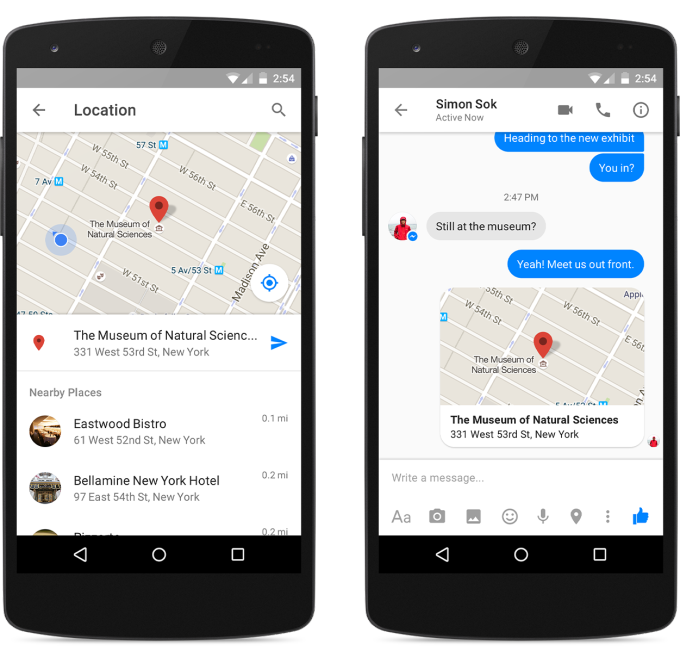Why 800M people (including me) are warming up to Facebook Messenger


Do you remember when Facebook essentially forced its user-base to download and install Facebook Messenger?
I do, because I was ticked off. Not that I was a big Facebook Messenger user to begin with but still: I'd rather have the choice of what apps are on my phone. And I had to install the Messenger app - even though I already had several (too many!) to begin with - mainly because various contacts from all walks of my life were reaching out to me through Facebook's chat service.
Fast forward to today and I'm starting to change my mind about Facebook Messenger. In fact, I may shift my primary chat communications away from texting, iOS Messages, Google Hangouts, Skype, and a few other services simply to embrace Facebook's platform.
It seems like many others are doing the same, or at least partially: Facebook now has 800 million monthly active users; up from 500 million just 14 months ago.
How has it done so? In several ways, some of which have me reconsidering the use of Facebook Messenger.
I said years ago that I don't want to call phone numbers; I want to call people.
Facebook Messenger lets you do just that because you can send a communications request to anyone on the platform without needing or knowing their phone number. Facebook Messenger has essentially become the white pages of the smartphone age.
That's key for me since I use multiple phones. Texting isn't the best communication option any longer when you have two phone numbers, for example.
And it's difficult to stay in touch with people if you have to worry about which mobile platform they're using.
My wife and kids have iPhones and use iOS Messages routinely, for example. When using my Nexus 5X, I'm not getting those messages; not just because I'm using Android but because I have a different phone number than my iPhone. Of course, I could try to get my family to install Google Hangouts, but that's a challenge since they're set in their ways.
They all have Facebook Messenger installed though. And so do I. It no longer matters what device, platform or phone number I'm using: We can still stay in touch easily using Facebook Messenger.
But it doesn't end there because Facebook has spent much of 2015 building out the features of Facebook Messenger. With that one app, generally becoming ubiquitous, you can also make HD voice calls, have a video chat, send payments and share photos. And again, it's all in one app that most of the people I communicate with already have installed; there's less of a usage barrier as a result.
2016 shows no sign of let up for Facebook Messenger either, when it comes to add-on features. The company has a new Chat SDK so that developers can build intelligent chat bots, for example. And last month - even though I wasn't too keen on it - Facebook added car-sharing services through Uber, with Lyft and other partners coming to the platform.
Essentially, Facebook Messenger is becoming a one-stop shop for all potential communications needs built upon a massive database of people around the world.
And when I said I wanted to communicate with people, not numbers, and not worry about what device they were using, that's exactly what Facebook is delivering across mobile and web platforms.
Perhaps the ill-fated "Facebook Phone" known as the HTC First taught Facebook a lesson. It doesn't need to build its own hardware when it can expand its services and software that can run on everyone else's phone, usurping even the native communications suites found on those devices.
Update: After writing this article, I added both my iPhone and Nexus 5X phone numbers to Facebook Messenger and had my wife try a test voice call. Both handsets rang and I was able to speak with her on either one, which makes the platform even more compelling to me.